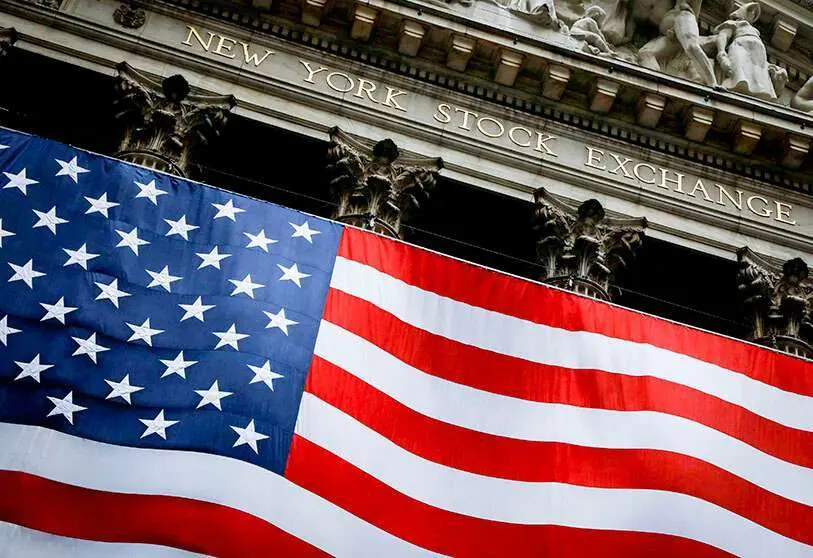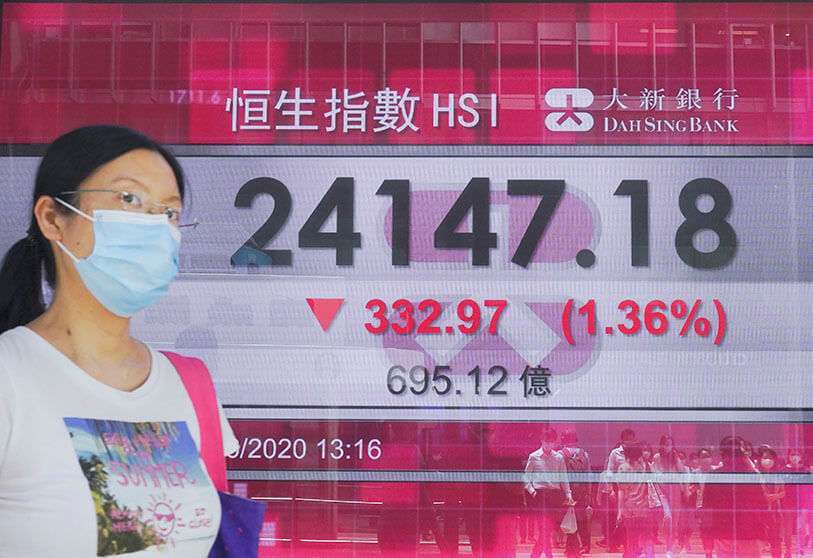The Federal Reserve's downgrading of its projections is weighing on the stock markets

The week in the world's stock markets was marked by the negative forecasts presented by the Federal Reserve (Fed) on Wednesday. Fed analysts ruled out a V-shaped recovery and warned of the dangers posed by the resurgence in some parts of the U.S. Parks around the world have put the brakes on the dizzying rises they had experienced in previous weeks as a result of the reopening of European economies. This Thursday's session saw sharp falls, nearly 5% in Europe and up to 7% in the United States, although this Friday there were slight bounces of 1% in the main places.
Following the drastic reduction in the Fed's macroeconomic projections, the release of weekly unemployment data in the US confirmed that the economic situation remains very delicate. Weekly jobless claims stood at 1.54 million, down from 1.6 million and 1.9 million last week, but the impact of the health care crisis is still very strong. Economists estimate that in just over two months the world's leading economy has destroyed 42 million jobs.
There have also been falls of up to 8% in oil prices this Thursday which have continued this Friday with 2% drops to levels below $39 per barrel from Brent, down 15% from the end of last week, in the face of fears of a weak recovery in demand and the recent rebound in inventories which raises doubts about the rebalancing of supply and demand despite the latest OPEC agreement to extend production cuts.

"This market volatility is logical in a context of uncertainty like the one we are experiencing. The stock markets are already beginning to discount the possibility of a V-shaped recovery. As a catalyst for the falls, we must highlight the negative tone of the forecasts launched by the Fed and the OECD this week, as well as the fear of a second wave of contagion in some economies that are in the midst of de-escalation, such as Houston, or with the pandemic in full swing, such as Latin America," explain the analysts at Renta4Banco in an analysis for clients this Friday.
Throughout the week there has been a cascade of negative economic projections. On Monday, the World Bank predicted the biggest drop in the global economy since World War II (5.2%). Two days later, the OECD went further and anticipated a collapse of between 6% and 7.6%. On Friday, it became known that the UK's GDP suffered a record 20.4% contraction in April, a higher figure than expected. Industrial production in the Eurozone suffered a historic fall of 17.1% in April. "A second wave of the virus that would force large parts of the US back into confinement is the biggest risk to the stock markets right now," said eToro analyst Adam Vettese in a statement to the daily El Economista.
Market volatility has strengthened the price of safe-haven assets such as gold, which has rebounded by 3% this week. The stock market declines have been accompanied by a small rise in the interest rates of sovereign bonds from Spain, Italy, Greece and Italy. The Spanish risk premium climbed above 100 basis points, a level not reached since the beginning of the month.








